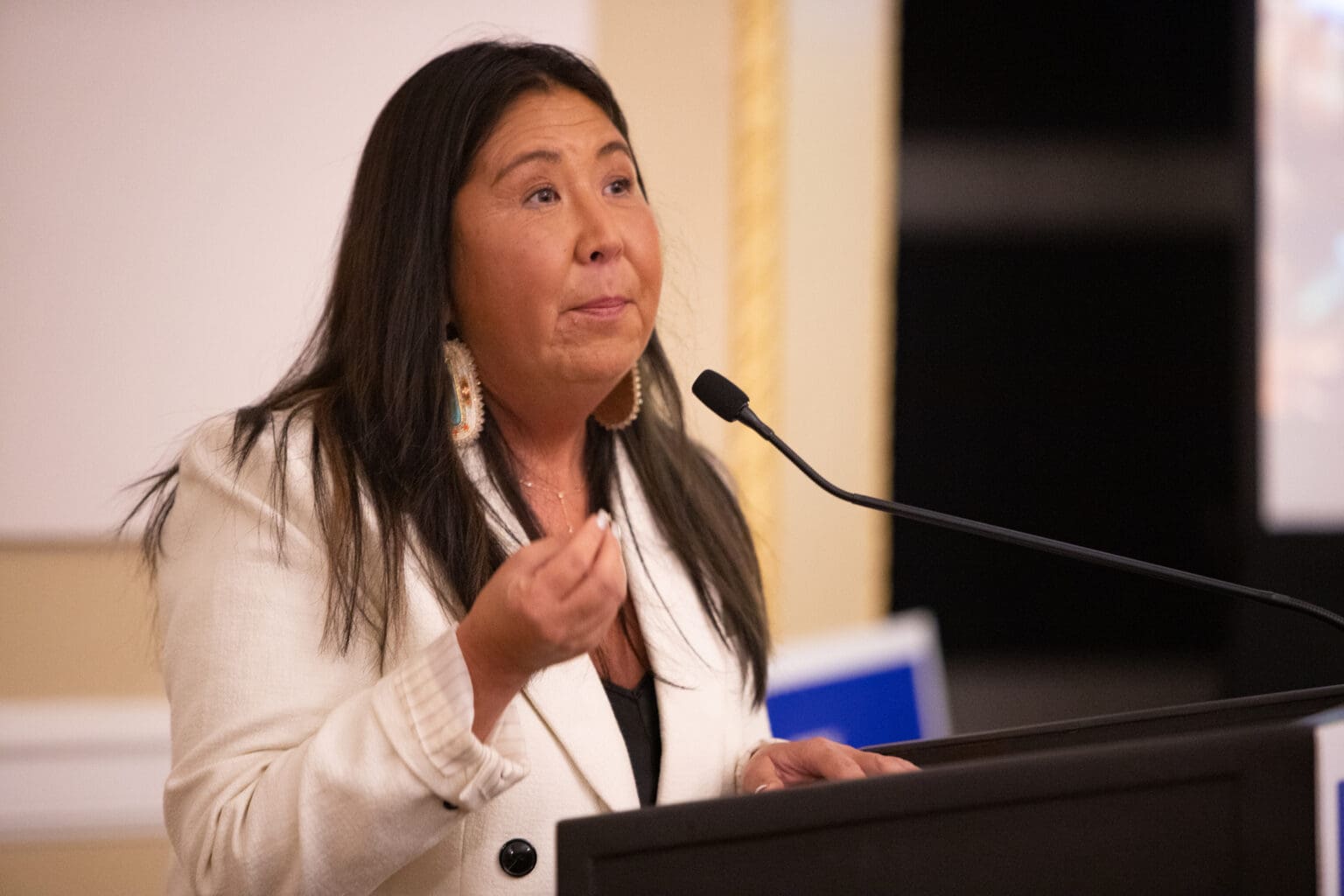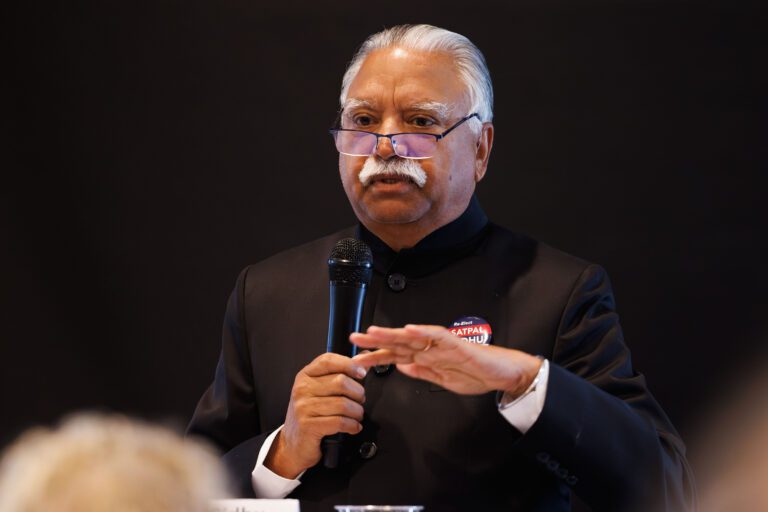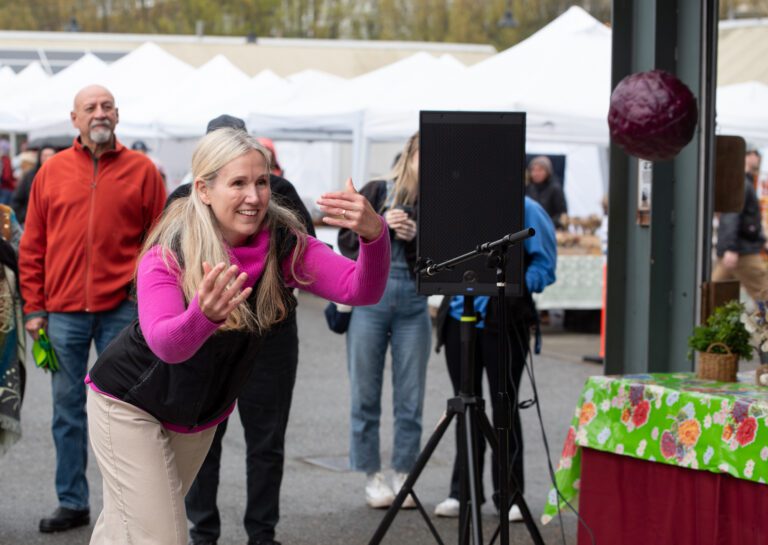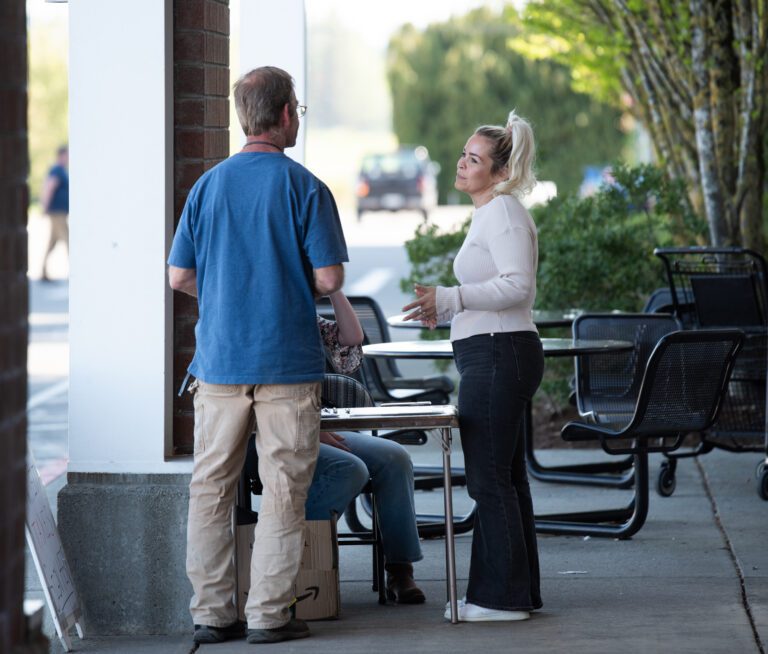During a 60-day session that starts Monday, Jan. 8, Democrats who hold a firm majority in both houses of the Washington state Legislature say they will focus on housing, climate change and the lethal opioid epidemic.
Republicans list public safety and election integrity among their priorities for the 2024 session, but will need help from across the aisle to advance their agenda.
Republicans could align with Democrats to combat a drug epidemic that is killing Washington residents in growing numbers — especially since Democrats are willing to invest in law enforcement, to go after fentanyl and other illicit substances at their source.
“I didn’t come into this to perpetuate the drug war,” said Rep. Alex Ramel, a Bellingham Democrat who joined the Legislature in 2020. “But the people selling [fentanyl] are unconscionable.”
The Whatcom County medical examiner recorded 117 confirmed and probable overdose deaths through November 2023, compared to 91 in all of 2022, according to the county Multi-Agency Coordination Group.
The statewide mortality rate from opioids has more than doubled since 2019, and the death rate is nearly four times higher for Indigenous peoples, according to data from the governor’s office.
“While addressing COVID and saving lives, we had another crisis,” said Rep. Debra Lekanoff, an Anacortes Democrat who is part Tlingit and part Aleut.
Lekanoff said she has been working with the governor’s office to fully fund regional drug task forces this year. Those law enforcement organizations rely on federal funding that isn’t guaranteed year-to-year, Lekanoff said.
Law enforcement efforts will be aimed at the high-level dealers, not drug users, Ramel and Lekanoff said. But that would only be one element to Democrats’ approach to the opioid crisis. Lekanoff said she also will work in the upcoming session to fund prevention, treatment and “aftercare,” which needs to include housing.
“We already have a homelessness crisis,” she said. “How can someone become fully recovered if they have no housing, no job and no financial stability?”
Legislators maintain focus on housing
The Legislature passed bills last year meant to increase housing density and invest more in home construction. The housing trust fund received a record $400 million infusion — enough to build 3,000 affordable homes.
But it will take years for new construction to catch up with the state’s housing deficit. In the shorter term, Ramel supports a bill that would cap rent increases.
More than 100,000 Washington residents saw their monthly rent increase by more than $500 over the previous year, according to census data from October 2023. The data indicates that the higher rent increases disproportionately affect people of color.
“Those rent increases are driving people into homelessness and driving people out of our community,” Ramel said.
House Bill 2114 would cap annual rent increases at 5%, with certain exceptions. The bill, introduced by Rep. Emily Alvarado of Seattle, is similar to legislation Ramel sponsored last year. His bill never made it to the House floor for a vote.
Developers had lobbied against Ramel’s bill, saying a cap on rent increases would have a chilling effect on housing construction. Ramel said this year’s bill addresses developers’ concerns by exempting new construction from the 5% limit for 10 years after a building opens.
Responses to climate change
Ramel, who is the climate policy advisor for Stand.earth when not in Olympia, will reintroduce House Bill 1391, which would have made it easier to improve the energy efficiency of residential and smaller commercial buildings.
Money has started to pour in for installing solar panels, converting from natural gas to electricity, and completing other climate-friendly remodels, thanks to the $1.8 billion the state has collected so far selling carbon allowances to industries at auction, according to the Department of Ecology.
The quarterly auctions were instituted last year as part of the 2021 Climate Commitment Act.
That revenue source could be cut off, if Initiative 2117 passes on the statewide ballot this year. Initiative backers say industries are passing the cost of carbon allowances on to consumers — notably at the gas pump.
Ramel said the revenue from carbon emitters is essential for completing major projects, including the conversion of the state’s aging ferries from diesel- to hybrid-powered.
“The Climate Commitment Act is how we’re going to fix the ferry system, period,” he said.
The Republican agenda
Republicans have their own plans for addressing the drug epidemic. Rep. Sam Low of Lake Stevens, whose 39th Legislative District includes eastern Skagit County, introduced a bill that would make it a felony to expose children to fentanyl or methamphetamine smoke.
In a December interview with AM 770 KTTH, a conservative talk radio station in Seattle, Low said Democrats’ policies on drug use are too lax.
“If we’re not going to protect those who are on the streets that are using fentanyl and meth, let’s start with protecting our kids,” Low said.
Low is also prime sponsor of a bill intended to clean up the voter rolls. House Bill 1962 doesn’t go as far as other Republican proposals, including a bill introduced by the late Sen. Doug Ericksen of Ferndale in 2021 that would have eliminated vote-by-mail and returned Washington voters to polling places.
Low’s bill is backed by Secretary of State Steve Hobbs, a Democrat. It would allow for automatic address updates for voters, when they move within the state, and would remove inactive voters from the rolls.
Republicans have been attempting to reform elections in the U.S. since former President Donald Trump claimed fraud in the results of the 2020 presidential race.
“People want to have trust in their elections, and clearly there’s a segment in our society that doesn’t trust elections right now,” Low told KTTH.




